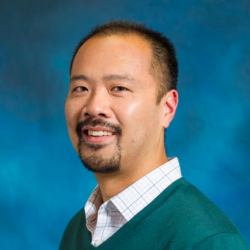
Please join the American Politics Workshop as they host Jonathan Woon, professor of Political Science at the University of Pittsburgh.
Abstract: How does partisanship affect beliefs about the accuracy of others’ knowledge (second-order beliefs)? How citizens perceive the accuracy and credibility of others’ information is a crucial component of processes of social learning and influence. We describe three possible mechanisms based on social identity theory, theories of bounded rationality, and theories of rational learning. Measuring second-order beliefs using an incentivized elicitation procedure (the Binarized Scoring Rule), we find strong evidence for in-group partisan bias: in-group partisans are perceived to have more accurate knowledge than out-group partisans despite a design in which there are no differences in the underlying accuracy of the groups. Consistent with the social identity mechanism, the bias gap varies with the strength of partisan identity (measured by a social psychological scale). The gap also varies with feelings toward members of each of the parties in ways consistent with the hypothesized bounded rationality mechanism of using affect as a heuristic. However, our results do not provide support for a rational learning theory of memory and political knowledge since the overall gap does not vary with party-specific knowledge.
Professor Woon’s research enriches our understanding of human behavior in the context of basic democratic processes. His work addresses a variety of questions concerning elections, representation, competition, and communication. Can voters hold politicians accountable? Why isn’t the pool of candidates for office more diverse? Do elections increase the provision of public goods? Are parties’ reputations tied to what they do in government? How does competition affect the incentives for lying and do citizens know when they are being lied to? Professor Woon approaches these questions primarily by conducting incentivized small group and decision-making experiments, applying the methods of experimental and behavioral economics. He also generates insights from game theoretic and behavioral models, survey experiments, and the statistical analysis of elections, public opinion, and legislative behavior."
Audience
- Faculty/Staff
- Student
- Graduate Students
Interest
- Academic (general)